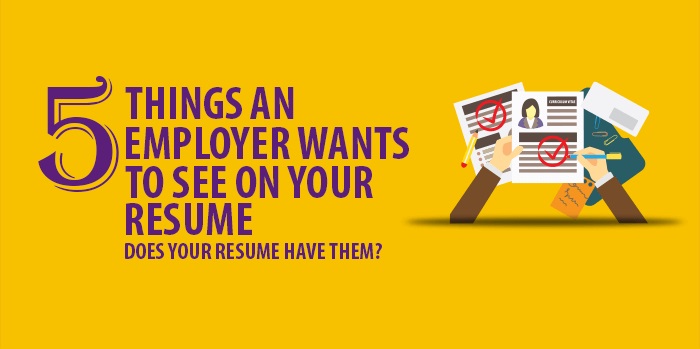In his bestselling e-book, Resumes are Dead, author Richie Norton describes what a job application needs to say about you. “It’s not about how smart you are – it’s about capturing minds.”
A resume, after all, gives an employer the first impression of you as a candidate. It acts as your representative and promotes your capabilities and strengths. It tells an employer why he should consider short-listing you for the interview.

It is therefore important to have a clear, brief and precise resume. It has to both make an impression and convey to your prospective employer all the information they need to know about you at the pre-interview stage.
While shortlisting resumes, here is what employers want to know:
1. Is the candidate suitable for the job?
The first thing an employer looks for on a resume is whether an applicant has the educational qualifications and/or the work experience relevant to the position. For example, if the opening is for a marketing job in a publishing house, the employer may be looking for an MBA in marketing as well as experience in marketing books or magazines. As a candidate, you should tailor your resume to match the job criteria to maximize your chances of being short-listed for the interview. A good strategy is to revisit the job description and play up those parts in your resume that are more relevant to the position you seek.
2. Is the candidate diligent?
A typo in your resume is one of the surest ways of blowing your chances for an interview. Apart from your suitability for the job, your resume also tells the hiring manager how diligent you are about your work and whether you take pride in it. An error on your resume immediately signals un-attentiveness. A clean, attractive and well-presented resume, on the other hand, will tell employers that the candidate takes pride in his work.
3. Is the candidate result-oriented?
Employers love candidates who show results. They want to read about instances where a candidate achieved some degree of success so that they have a reliable measure to judge his/her worth. So be sure to include on your resume examples of your achievements. This could go a long way in marking you out from the other applicants.
4. Does the candidate’s career graph make sense?
The companies you’ve been employed with, and the positions you’ve held up until now, should combine in one overarching narrative to tell a sensible story. Hiring managers will examine your professional history to see if it is consistent with your career goals and objectives. If you appear to be a job jumper or if your career path follows a broken trajectory, be sure that your prospective employer will quiz you on it if you are called for an interview.
5. Is the candidate multifaceted?
After employers have shortlisted you for the skills required for the job, they may choose to look at your hobbies and interests. Is the candidate a good public speaker? Can he play a sport? Is he a good musician? What hobbies does he have? To the employer, hobbies and interests show passion, creativity, leadership and initiative. They also indicate how the candidate can help enrich life at the organization. Sometimes, a brief mention of your other skills may gain you an edge over the other candidates.
Your resume must speak to a potential employer. To make that conversation meaningful, you can even take professional help in resume writing.





